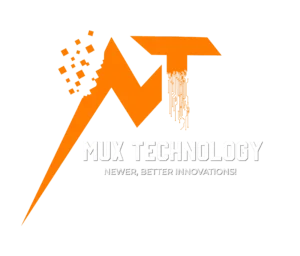In the ever-evolving landscape of online advertising and marketing, the hunt for powerful strategies to attain and interact with the right audience is paramount. Two indispensable pieces of gear in this quest are search engine optimization (search engine optimization) and pay-per-click. Both play pivotal roles in improving online visibility and sending targeted visitors to websites. This article will delve into the topic ‘What is SEO and PPC in marketing’, exploring their definitions, functionalities, benefits, and the crucial choice-making technique of when to apply each.
SEO in Marketing
What is Search Engine Marketing?
Search engine optimization, or search engine optimization, is the art and technology of improving a website’s visibility in natural (non-paid) search engine outcomes. It involves a strategic method for optimizing numerous factors of an internet site to align seamlessly with search engine algorithms, thereby boosting its scores.
How Does Search Engine Optimization (SEO) Work?
Search engine optimization operates by optimizing on-page elements consisting of content, meta tags, and images at the side of off-web page elements like back-links. Complex algorithms used by search engines like Google and Yahoo evaluate these elements, figuring out the relevance and authority of an internet site in reaction to a consumer’s search query.
Benefits of Search Engine Marketing
The benefits of search engine marketing are multi-faceted. Not only does it contribute to increased natural visitors, but it also builds credibility and agreement. Search engine marketing improves the overall user experience, and perhaps most importantly, it affords a foundation for long-term sustainability in the aggressive online panorama.
Common Search Engine Optimization Strategies
Effective search engine marketing techniques encompass quite a number of activities, including meticulous keyword research, on-page optimization, strategic link construction, and steady content introduction. Regular updates are vital to adapt to modifications in search engine algorithms and keep or improve search ratings.
PPC in Marketing
What is PPC?
PPC, or pay-per-click, is a form of online advertising wherein advertisers pay a fee on every occasion a consumer clicks on their ad. It’s a proactive approach to gaining visits to a website instead of the organic, non-paid traffic generated through search engine marketing.
How Does PPC Work?
PPC operates through a bidding system wherein advertisers bid on keywords relevant to their target market. When a person enters a search question matching those keywords, the advertiser’s ad is displayed. The advertiser will pay a predetermined amount only when the ad is clicked; as a result, the call will be “Pay-Per-Click.”
Benefits of PPC
PPC offers immediate visibility, a specific focus on options, and complete control over budget and advertising spending. It is a measurable and price-powerful way to force site visitors to acquire specific advertising dreams, consisting of lead technology or product income.
Common PPC Strategies
Successful PPC strategies entail complete keyword studies, compelling ad copy creation, strategic bid control, and non-stop performance evaluation. Advertisers can also leverage ad extensions and remarketing strategies to enhance the effectiveness of their PPC campaigns.
SEO vs. PPC
Key Differences
The primary distinction between search engine optimization and PPC lies in the method of obtaining traffic. Search engine marketing specializes in natural search results, while PPC entails paid advertising. Search engine marketing is an extended-term strategy, with effects taking time to appear, while PPC gives immediate visibility, making it a super preference for time-touchy campaigns.
When to Use Search Engine Optimization
Search engine marketing is good for businesses searching for sustained, lengthy-term growth. It is specifically effective for building logo credibility and attracting natural traffic over time. Search engine optimization is a foundational aspect of any complete virtual advertising strategy.
When to Use PPC
PPC is fantastic, but immediate effects are preferred. It’s a terrific method for product launches, promotions, or targeting specific demographics. PPC permits specific budget control and brief modifications to marketing campaign techniques.
Combining search engine optimization and PPC
Synergy Between SEO and PPC
While search engine optimization and PPC serve special purposes, they are able to supplement each other effectively. The data amassed from PPC campaigns, including high-acting keywords and ad copy, can inform and enhance search engine optimization strategies. Additionally, occupying each natural and paid space at the search engine affects the web page and enhances average visibility.
Best Practices
To maximize the blessings of combining SEO and PPC, align keyword techniques, analyze move-channel data, and preserve constant messaging. Coordinating efforts ensures a holistic technique for online visibility and audience engagement. Employing first-class practices ensures a complete and powerful virtual marketing strategy that resonates with target audiences and achieves enterprise targets.
Conclusion
In the end, search engine optimization and PPC are quintessential gear in the marketer’s arsenal, imparting unique benefits. The key lies in understanding their functionalities and blessings and knowing how to leverage one over the other. Moreover, the synergy created by combining search engine marketing and PPC can propel a logo to new heights in the aggressive realm of online advertising. Striking for stability and employing nice practices guarantees a complete and powerful virtual advertising strategy that resonates with target audiences and achieves business goals.








